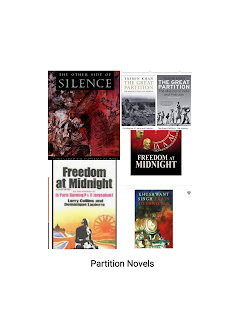Thinking Activity
(Paradise Lost)
Hello friends,This blog is response to the task assigned by Dr.Dilip Barad sir. To view task Click Here
(1)What is your understanding of human perspective and divine perspective? Give illustration to support your understanding.
(1)Human Perspective:
The humanistic perspective is an approach to psychology that emphasizes empathy and stresses the good in human behavior. ... In counseling and therapy, this approach allows an psychologist to focus on ways to help improve an individual's self-image or self-actualization - the things that make them feel worthwhile.
The humanistic perspective focuses on the positive image of what it means to be human. Human nature is viewed as basically good, and humanistic theorists focus on methods that allow fulfillment of potential.
Humanistic, humanism and humanist are terms in psychology relating to an approach which studies the whole person, and the uniqueness of each individual. Essentially, these terms refer the same approach in psychology.
(2)Divine Perspective:
Divine perspective helps us stay objective in times of uncertainty.
MICHELLE VAN LOON says for divine perspective that… The very act of asking God to teach us about the brevity of our lives is how we learn to surrender our plans, dreams, and goals to God. It invites an eternal perspective on our temporal plans—a perspective that cultivates wisdom in our lives as we face each day’s challenges, no matter which stage of life we inhabit.
Human perspective
|
Divine perspective
|
Man as center
|
God’s Mission Field
|
Laking
|
No Lack
|
External result
|
Eternal Results
|
No boundaries
|
Beyond Sight
|
Renaissance spirit
|
Beyond Natural
|
In Awe of Him
| |
Beyond Measure
|
(2) How do read the character of Eve transgressed and yet defendable?
What Milton has tried to convey in the Bible is something quite unique and using his own theatrical style. If we try to look deeper, perhaps Milton did not intend to depict the character of the woman in the time when he wrote this epic, but the literature always provides a new perspective to society to look at by comparing the present to the past. Keeping Eve's character in the center,at all Eve, the stereotypical female figure, is taken apart from the Holy Bible, re-inscribed and reassembled to form a fresh and subversive ideological configuration.
As numerous feminist critics have noticed, the discourse of the Bible is almost totally patriarchal. First, at the beginning of the Garden myth, God, Yahweh, creates the whole world for Adam, the man. Woman is created
As numerous feminist critics have noticed, the discourse of the Bible is almost totally patriarchal. First, at the beginning of the Garden myth, God, Yahweh, creates the whole world for Adam, the man. Woman is created
later., first means superior and later means inferior or subordinate. She is a helpmate to cure man’s loneliness. Such male-centredness becomes more apparent when it is described that Eve, the first woman, is only a derivative
made from Adam’s rib, whereas Adam is made from the breath of God.
Because of the deficiency, women are also said to be initially flawed in their creation.
made from Adam’s rib, whereas Adam is made from the breath of God.
Because of the deficiency, women are also said to be initially flawed in their creation.
It should be noted that there was a defect in the formation of the first woman, since she was formed from a bent rib, that is, a rib of the breast, which is bent as it were in a contrary direction to a man.
Eve’s personal consciousness, free will, desire for knowledge, truth, and justice,
as well as her disobedience to her parents and the church are not punished, but celebrated. Readers are invited to witness Lyra’s growth and maturation. She continues to grow into a
wiser, stronger, and better person.
as well as her disobedience to her parents and the church are not punished, but celebrated. Readers are invited to witness Lyra’s growth and maturation. She continues to grow into a
wiser, stronger, and better person.
Even when they are in conflict with laws or any authority figures worshipped by the majority, one should still stick to one’s conscience and ethical principles,
stand up for the greater good, and fight for the welfare of all.
stand up for the greater good, and fight for the welfare of all.
Regarding the double punishment cast on Eve, a French medieval guidebook known as The Goodman of Paris (1393) explains that Eve is twice cursed because she sins twice. Eve’s first sin is her pride. She sets herself up to be like God. Accordingly, she is cast down into a
position of subjection to her husband. Her second sin is the same as Adam’s – she eats the forbidden fruit, and thus her second penalty is the terrible pain of childbearing.
position of subjection to her husband. Her second sin is the same as Adam’s – she eats the forbidden fruit, and thus her second penalty is the terrible pain of childbearing.





